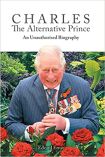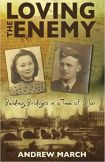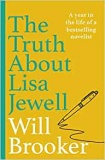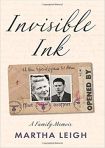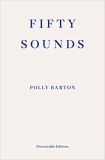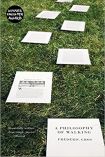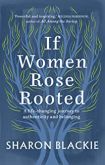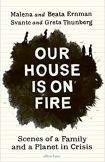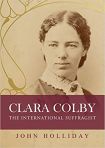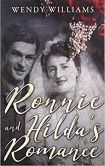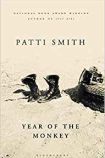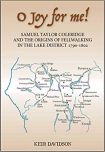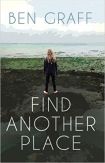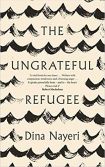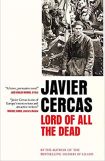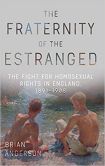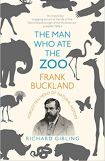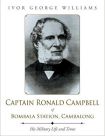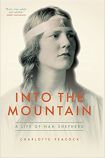Difference between revisions of "Newest Biography Reviews"
| (236 intermediate revisions by 4 users not shown) | |||
| Line 1: | Line 1: | ||
[[Category:Biography|*]] | [[Category:Biography|*]] | ||
| − | [[Category:New Reviews|Biography]] | + | [[Category:New Reviews|Biography]]__NOTOC__<!-- INSERT NEW REVIEWS BELOW HERE--> |
| − | + | {{Frontpage | |
| − | __NOTOC__ | + | |isbn=1788360702 |
| − | {{ | + | |title=Charles, The Alternative Prince: An Unauthorised Biography |
| − | | | + | |author=Edzard Ernst |
| − | |title= | ||
|rating=4 | |rating=4 | ||
|genre=Biography | |genre=Biography | ||
| − | |summary= | + | |summary=For over forty years, Prince Charles has been an ardent supporter of alternative medicine and complementary therapies. ''Charles, The Alternative Prince'' critically assesses the Prince's opinions, beliefs and aims against the background of the scientific evidence. There are few instances of his beliefs being vindicated and his relentless promotion of treatments which have no scientific support has done considerable damage to the reputation of a man who is proud of his refusal to apply evidence-based, logical reasoning to his ambitions. |
| − | |||
}} | }} | ||
| − | + | {{Frontpage | |
| − | {{ | + | |isbn=1739805100 |
| − | | | + | |title=Loving the Enemy: Building bridges in a time of war |
| − | |title= | + | |author=Andrew March |
| − | |rating= | + | |rating=4.5 |
|genre=Biography | |genre=Biography | ||
| − | |summary= | + | |summary= ''Loving the Enemy'' tells the quite extraordinary story of author Andrew March's grandparents, who first met when grandfather Fred Clayton went to Dresden to teach in the early days of the Nazi regime in the 1930s. Fred, a sensitive and thoughtful man, had some vague ideas of "building bridges" which may guard against the growing hostilities between nations unfolding in Europe at the time. Fred's attempts to separate individual people from ideology weren't universally successful but he did make friendships and connections that lasted for a lifetime. |
| − | |||
}} | }} | ||
| − | + | {{Frontpage | |
| − | {{ | + | |author=Will Brooker |
| − | |author= | + | |title=The Truth About Lisa Jewell |
| − | |title= | ||
|rating=5 | |rating=5 | ||
|genre=Biography | |genre=Biography | ||
| − | |summary=' | + | |summary=Meet [[:Category:Lisa Jewell|Lisa Jewell]], one of the most successful British authors I've never knowingly read. Now meet Will Brooker, one of the thousands of less successful authors I quite confidently never have read. This book starts with the two meeting each other, as well, and shows how 2021 drew the two closer and closer together. The meeting was some unspecified combination, it seems, of her anecdote about cup cakes, the words of her latest book she was reciting, and her being in a ''black lace mini-dress with gold brocade'' (certainly a get-up never commonly worn at the author events I get to attend), but pulled Brooker, a professor of cultural studies who has swallowed Roland Barthes, down the rabbit-hole that is Jewell's diverse output. Brooker decides he'd like nothing more than to follow her through a year in the published author's life, working to make a success of the latest title, and struggling with the next in line. Jewell, due diligence appropriately done, agrees. And this is the result. |
| − | | | + | |isbn=1529136024 |
| + | }} | ||
| + | {{Frontpage | ||
| + | |author= Martha Leigh | ||
| + | |title= Invisible Ink: A Family Memoir | ||
| + | |rating= 5 | ||
| + | |genre= Biography | ||
| + | |summary= Martha Leigh begins her book talking about a childhood spent in a slightly eccentric, immediately recognisable upper middle class English family. Her father is a Cambridge don, forever clacking away on his typewriter as he edits the complete correspondence of the philosopher Jean-Jacques Rousseau, his life's work. Her mother is a concert pianist who practises for hours every day. Neither parent is hugely interested in the practicalities of life. There is love in the house but also darker undercurrents that a child does not fully understand but knows is there. | ||
| + | |isbn=1800460384 | ||
}} | }} | ||
| − | + | {{Frontpage | |
| − | {{ | + | |author=Polly Barton |
| − | |author= | + | |title=Fifty Sounds |
| − | |title= | ||
|rating=4.5 | |rating=4.5 | ||
| − | |genre= | + | |genre=Politics and Society |
| − | |summary= | + | |summary= Where do I start? I could start with where Barton herself starts, with the question ''Why Japan?'' Japan has been on my radar for a while and if the world hadn't gone into melt-down I would have visited by now. I may get there later this year, but I am not hopeful. And like Barton, I don't know the answer to the question ''why Japan?'' She explains her feelings in respect of the question in the first essay, which is on the sound ''giro' '' – which she describes as being, among other things, the sound of ''every party where you have to introduce yourself''. |
| − | | | + | |isbn=1913097501 |
| + | }} | ||
| + | {{Frontpage | ||
| + | |author=Frederic Gros | ||
| + | |title=A Philosophy of Walking | ||
| + | |rating=5 | ||
| + | |genre= Politics and Society | ||
| + | |summary= I confess I picked this one up from the library in my pre-lockdown forage of random stuff. Now I have to go out an buy my own copy so that I can turn down the pages I have marked and return to its varying wisdom when I need to. Some books draw you in slowly. This one had me in the first two pages, wherein Gros explains why ''walking is not a sport''. | ||
| + | |isbn=1781688370 | ||
| + | }} | ||
| + | {{Frontpage | ||
| + | |author=Sharon Blackie | ||
| + | |title=If Women Rose Rooted | ||
| + | |rating=5 | ||
| + | |genre= Biography | ||
| + | |summary= I normally say that you can tell how much a book means to me by how many pages have corners turned down. Perhaps an even greater measure of impact is setting out to buy my own copy before I've finished reading the one I've borrowed. I want to avoid clichés like 'powerful' 'inspiring' 'life-changing' – although it is definitely the first two and only time will tell about the third – but clichés exist for a reason and I'm not sure I can succinctly put it any better. | ||
| + | |isbn=1912836017 | ||
}} | }} | ||
| − | + | {{Frontpage | |
| − | {{ | + | |isbn=0241446732 |
| − | | | + | |title=Our House is on Fire: Scenes of a Family and a Planet in Crisis |
| − | |title= | + | |author=Malena Ernman, Greta Thunberg, Beata Thunberg and Svante Thunberg |
| − | |rating= | + | |rating=5 |
| − | |genre= | + | |genre=Politics and Society |
| − | |summary=The | + | |summary=The Ernman / Thunberg family seemed perfectly normal. Malena Ernman was an opera singer and Svante Thunberg took on most of the parenting of their two daughters. Then eleven-year-old Greta stopped eating and talking and her sister, Beata, then nine years old, struggled with what was happening. In such circumstances, it's natural to seek a solution close to home, but eventually, it became clear to the family that they were ''burned-out people on a burned-out planet''. If they were to find a way to live happily again their solution would need to be radical. |
| − | |||
}} | }} | ||
| − | + | {{Frontpage | |
| − | {{ | + | |isbn=0648684806 |
| − | | | + | |title=Clara Colby: The International Suffragist |
| − | |title= | + | |author=John Holliday |
|rating=4 | |rating=4 | ||
|genre=Biography | |genre=Biography | ||
| − | |summary= | + | |summary=The path of Clara Dorothy Bewick's life was probably determined when her family emigrated to the USA. At the time she was just three-years-old but because of some childhood ailment, she wasn't allowed to sail with her parents and three brothers. Instead, she remained with her grandparents, who doted on her and saw that she received a good education, both in and out of school. She was the only child in the household and her childhood was glorious. By contrast, her family had become pioneer farmers in the mid-west of the United States and life was hard, as Clara was to find out when she and her grandparents eventually went to join the family. Clara would only know her mother for a few months: she was married for fifteen years, had ten pregnancies, seven surviving children and died in childbirth not long after Clara arrived. As the eldest girl, a heavy burden would fall on Clara and Wisconsin was a rude awakening. |
| − | |||
}} | }} | ||
| − | + | {{Frontpage | |
| − | {{ | + | |isbn=1789017977 |
| − | | | + | |title=Ronnie and Hilda's Romance: Towards a New Life after World War II |
| − | |title= | + | |author=Wendy Williams |
|rating=4 | |rating=4 | ||
| − | |genre= | + | |genre=History |
| − | |summary= | + | |summary=Ronnie Williams was the son of Thomas Henry Williams (known as Harry) and Ethel Wall. There's some doubt as to whether or not they were ever married or even Harry's birthdate: he claimed to have been born in 1863, but he was already many years older than Ethel and he might well have shaved a few years off his age. For a while, the family was quite well-to-do but disaster struck in the 1929 Depression and five-year-old Ronnie had to adjust to a very different lifestyle. One thing he did inherit from his father was his need to be well-turned-out and this would stay with him throughout his life. He joined the army at eighteen in 1942. |
| − | |||
}} | }} | ||
| − | + | {{Frontpage | |
| − | {{ | + | |author=Patti Smith |
| − | |author= | + | |title=Year of the Monkey |
| − | |title= | ||
|rating=4 | |rating=4 | ||
|genre=Biography | |genre=Biography | ||
| − | |summary= | + | |summary=On the coast of Santa Cruz, Patti Smith enters the lunar year of the monkey - one packed with mischief, sorrow, and unexpected moments. In a stranger's words, ''Anything is possible: after all, it's the year of the monkey''. As Smith wanders the coast of Santa Cruz in solitude, she reflects on a year that brings huge shifts in her life - loss and ageing are faced head-on, as it the shifting political waters in America. |
| − | | | + | |isbn=1526614758 |
}} | }} | ||
| − | + | {{Frontpage | |
| − | {{ | + | |isbn=1912242052 |
| − | | | + | |title=O Joy for me! |
| − | |title= | + | |author=Keir Davidson |
| − | |rating= | + | |rating=3 |
| − | |genre= | + | |genre=Art |
| − | |summary= | + | |summary=''Oh Joy for me!'' gives Coleridge credit for being ''the first person to walk the mountains alone, not because he had to for work, as a miner, quarryman, shepherd or pack-horse driver, but because he wanted to for pleasure and adventure. His rapturous encounters with their natural beauty, and its literary consequences, changed our view of the world''. |
| − | |||
}} | }} | ||
| − | + | {{Frontpage | |
| − | {{ | + | |isbn=Graff_Find |
| − | | | + | |title=Find Another Place |
| − | |title= | + | |author=Ben Graff |
| − | |rating= | + | |rating=3.5 |
| − | |genre= | + | |genre=Autobiography |
| − | |summary= | + | |summary=When Ben Graff's grandfather Martin handed him a plastic folder of handwritten notes from his journal, he didn't take much notice of it. At the age of 24, Graff didn't realise the gravity of the pages he was holding. |
| − | |||
}} | }} | ||
| − | {{ | + | {{Frontpage |
| − | | | + | |isbn=1789016304 |
| − | |title= | + | |title=War and Love: A family's testament of anguish, endurance and devotion in occupied Amsterdam |
| + | |author=Melanie Martin | ||
|rating=5 | |rating=5 | ||
|genre=Biography | |genre=Biography | ||
| − | |summary= | + | |summary=Melanie Martin read about what happened to Dutch Jews in occupied Amsterdam during World War II and was entranced by what she discovered, particularly in ''The Diary of Ann Frank'' but then realised that her own family's stories were equally fascinating. A hundred and seven thousand Jews were deported from the city during the war years, but only five thousand survived and Martin could not understand how this could be allowed to happen in a country with liberal values who were resistant to German occupation. Most people believed that the occupation could never happen: even those who thought that the Germans might reach the city were convinced that they would soon be pushed back, that the Amsterdammers would never allow what happened to escalate in the way that it did, but initial protests melted away as the organisers became more circumspect. It's an atrocity on a vast scale but made up of tens of thousands of individual tragedies. |
| − | |||
}} | }} | ||
| − | + | {{Frontpage | |
| − | {{ | + | |isbn=1786893452 |
| − | | | + | |title=The Ungrateful Refugee |
| − | |title= | + | |author=Dina Nayeri |
|rating=4.5 | |rating=4.5 | ||
|genre=Biography | |genre=Biography | ||
| − | |summary= | + | |summary=Here in the West, we see news reports about immigrants on a regular basis – some media welcoming them, some scaremongering about them. But all of those stories are written by journalists – almost always western, and almost always, no matter how deep the investigative journalism they carry out, outsiders to the world and the situations that refugees find themselves in. It's rare that we find out the journeys from the refugees themselves – and this is a rare opportunity to do that, in this intelligent, powerful and moving work by Dina Nayeri -someone who was born in the middle of a revolution in Iran, fleeing to America as a ten-year-old. |
| − | |||
| − | |||
| − | |||
| − | |||
| − | |||
| − | |||
| − | |||
| − | |||
| − | |||
| − | |||
| − | |||
| − | |||
| − | |||
| − | |||
| − | |||
| − | |||
| − | |||
| − | |||
| − | |||
| − | |||
| − | |||
| − | |||
| − | |||
| − | |||
| − | |||
| − | |||
| − | |||
| − | |||
| − | |||
}} | }} | ||
| − | + | {{Frontpage | |
| − | {{ | + | |isbn=0857058320 |
| − | | | + | |title=Lord Of All the Dead |
| − | |title= | + | |author=Javier Cercas and Anne McLean (translator) |
|rating=4 | |rating=4 | ||
|genre=Biography | |genre=Biography | ||
| − | |summary= | + | |summary=''Lord Of All the Dead'' is a journey to uncover the author's lost ancestor's life and death. Cercas is searching for the meaning behind his great uncle's death in the Spanish Civil War. Manuel Mena, Cercas' great uncle, is the figure who looms large over the book. He died relatively young whilst fighting for Francisco Franco's forces. Cercas ruminates on why his uncle fought for this dictator. The question at the centre of this book is whether it is possible for his great uncle to be a hero whilst having fought for the wrong side. |
| − | |||
}} | }} | ||
| − | + | {{Frontpage | |
| − | {{ | + | |isbn=1788037812 |
| − | | | + | |title=The Fraternity of the Estranged: The Fight for Homosexual Rights in England, 1891-1908 |
| − | |title= | + | |author=Brian Anderson |
|rating=5 | |rating=5 | ||
|genre=Biography | |genre=Biography | ||
| − | |summary= | + | |summary=Originally passed in 1885, the law that had made homosexual relations a crime remained in place for 82 years. But during this time, restrictions on same-sex relationships did not go unchallenged. Between 1891 and 1908, three books on the nature of homosexuality appeared. They were written by two homosexual men: Edward Carpenter and John Addington Symonds, as well as the heterosexual Havelock Ellis. Exploring the margins of society and studying homosexuality was common on the European Continent, but barely talked about in the UK, so the publications of these men were hugely significant – contributing to the scientific understanding of homosexuality, and beginning the struggle for recognition and equality, leading to the milestone legalisation of same-sex relationships in 1967. |
| − | |||
| − | |||
| − | |||
| − | |||
| − | |||
| − | |||
| − | |||
| − | |||
| − | |||
| − | |||
}} | }} | ||
| − | + | {{Frontpage | |
| − | {{ | + | |isbn=Buckland_Zoo |
| − | | | + | |title=The Man Who Ate the Zoo: Frank Buckland, forgotten hero of natural history |
| − | |title=The Man Who | + | |author=Richard Girling |
|rating=4.5 | |rating=4.5 | ||
| − | |||
| − | |||
| − | |||
| − | |||
| − | |||
| − | |||
| − | |||
| − | |||
| − | |||
|genre=Biography | |genre=Biography | ||
| − | |summary= | + | |summary=As a conservationist in Victorian England before the term existed, Frank Buckland was very much a man ahead of his time. Surgeon, naturalist, veterinarian and eccentric sums him up perfectly, and any biographer is immediately presented with a colourful tale to tell. |
| − | |||
| − | |||
| − | |||
| − | |||
| − | |||
| − | |||
| − | |||
| − | |||
| − | |||
| − | |||
}} | }} | ||
| − | + | {{Frontpage | |
| − | {{ | + | |isbn=Williams_Captain |
| − | | | + | |title=Captain Ronald Campbell of Bombala Station, Cambalong: His Military Life and Times |
| − | |title= | + | |author=Ivor George Williams |
|rating=4 | |rating=4 | ||
|genre=Biography | |genre=Biography | ||
| − | |summary= | + | |summary=In March 1829 Ann Parker married Captain J A Edwards of the 17th Regiment of Foot. He was in command of the troops and convicts on board a ship sailing from Plymouth to Sydney, Australia: his wife and young son accompanied him. He was not destined to live a long life, dying suddenly at the age of 34 at Bangalore, leaving his widow to raise their two young sons. Edwards' death left his widow in a difficult position: not only did she have their farm to manage, but she was also responsible for the convicts who worked the land. Two years later she would marry Captain Ronald Campbell. |
| − | |||
}} | }} | ||
| − | + | {{Frontpage | |
| − | {{ | + | |isbn=Peacock_mountain |
| − | | | + | |title=Into The Mountain, A Life of Nan Shepherd |
| − | |title= | + | |author=Charlotte Peacock |
| − | |||
| − | |||
| − | |||
| − | |||
| − | |||
| − | |||
| − | |||
| − | |||
| − | |||
| − | |||
| − | |||
| − | |||
| − | |||
| − | |||
| − | |||
| − | |||
| − | |author= | ||
| − | |||
|rating=4.5 | |rating=4.5 | ||
|genre=Biography | |genre=Biography | ||
| − | |summary= | + | |summary=Mostly we choose what books to read because there is so little time and so many books… I can understand the approach, but I also think we sell ourselves short by it, and we sell the myriad lesser-known authors short as well. So while, like most other people I have my favourite genres, and favoured authors, and while, like most other people I read the reviews and follow up on what appeals, I also have a third-string to my reading bow: randomness. |
| − | |||
}} | }} | ||
| − | + | Move on to [[Newest Business and Finance Reviews]] | |
| − | |||
| − | |||
| − | |||
| − | |||
| − | |||
| − | |||
| − | |||
| − | |||
| − | |||
| − | |||
| − | |||
| − | |||
| − | |||
| − | |||
| − | |||
| − | |||
| − | |||
| − | |||
| − | |||
| − | |||
| − | |||
| − | |||
| − | |||
| − | |||
| − | |||
| − | |||
| − | |||
| − | |||
| − | |||
| − | |||
| − | |||
| − | |||
| − | |||
| − | |||
Latest revision as of 16:37, 21 July 2022
Review ofCharles, The Alternative Prince: An Unauthorised Biography by Edzard ErnstFor over forty years, Prince Charles has been an ardent supporter of alternative medicine and complementary therapies. Charles, The Alternative Prince critically assesses the Prince's opinions, beliefs and aims against the background of the scientific evidence. There are few instances of his beliefs being vindicated and his relentless promotion of treatments which have no scientific support has done considerable damage to the reputation of a man who is proud of his refusal to apply evidence-based, logical reasoning to his ambitions. Full Review |
Review ofLoving the Enemy: Building bridges in a time of war by Andrew MarchLoving the Enemy tells the quite extraordinary story of author Andrew March's grandparents, who first met when grandfather Fred Clayton went to Dresden to teach in the early days of the Nazi regime in the 1930s. Fred, a sensitive and thoughtful man, had some vague ideas of "building bridges" which may guard against the growing hostilities between nations unfolding in Europe at the time. Fred's attempts to separate individual people from ideology weren't universally successful but he did make friendships and connections that lasted for a lifetime. Full Review |
Review ofThe Truth About Lisa Jewell by Will BrookerMeet Lisa Jewell, one of the most successful British authors I've never knowingly read. Now meet Will Brooker, one of the thousands of less successful authors I quite confidently never have read. This book starts with the two meeting each other, as well, and shows how 2021 drew the two closer and closer together. The meeting was some unspecified combination, it seems, of her anecdote about cup cakes, the words of her latest book she was reciting, and her being in a black lace mini-dress with gold brocade (certainly a get-up never commonly worn at the author events I get to attend), but pulled Brooker, a professor of cultural studies who has swallowed Roland Barthes, down the rabbit-hole that is Jewell's diverse output. Brooker decides he'd like nothing more than to follow her through a year in the published author's life, working to make a success of the latest title, and struggling with the next in line. Jewell, due diligence appropriately done, agrees. And this is the result. Full Review |
Review ofInvisible Ink: A Family Memoir by Martha LeighMartha Leigh begins her book talking about a childhood spent in a slightly eccentric, immediately recognisable upper middle class English family. Her father is a Cambridge don, forever clacking away on his typewriter as he edits the complete correspondence of the philosopher Jean-Jacques Rousseau, his life's work. Her mother is a concert pianist who practises for hours every day. Neither parent is hugely interested in the practicalities of life. There is love in the house but also darker undercurrents that a child does not fully understand but knows is there. Full Review |
Review ofFifty Sounds by Polly BartonWhere do I start? I could start with where Barton herself starts, with the question Why Japan? Japan has been on my radar for a while and if the world hadn't gone into melt-down I would have visited by now. I may get there later this year, but I am not hopeful. And like Barton, I don't know the answer to the question why Japan? She explains her feelings in respect of the question in the first essay, which is on the sound giro' – which she describes as being, among other things, the sound of every party where you have to introduce yourself. Full Review |
Review ofA Philosophy of Walking by Frederic GrosI confess I picked this one up from the library in my pre-lockdown forage of random stuff. Now I have to go out an buy my own copy so that I can turn down the pages I have marked and return to its varying wisdom when I need to. Some books draw you in slowly. This one had me in the first two pages, wherein Gros explains why walking is not a sport. Full Review |
Review ofIf Women Rose Rooted by Sharon BlackieI normally say that you can tell how much a book means to me by how many pages have corners turned down. Perhaps an even greater measure of impact is setting out to buy my own copy before I've finished reading the one I've borrowed. I want to avoid clichés like 'powerful' 'inspiring' 'life-changing' – although it is definitely the first two and only time will tell about the third – but clichés exist for a reason and I'm not sure I can succinctly put it any better. Full Review |
Review ofOur House is on Fire: Scenes of a Family and a Planet in Crisis by Malena Ernman, Greta Thunberg, Beata Thunberg and Svante ThunbergThe Ernman / Thunberg family seemed perfectly normal. Malena Ernman was an opera singer and Svante Thunberg took on most of the parenting of their two daughters. Then eleven-year-old Greta stopped eating and talking and her sister, Beata, then nine years old, struggled with what was happening. In such circumstances, it's natural to seek a solution close to home, but eventually, it became clear to the family that they were burned-out people on a burned-out planet. If they were to find a way to live happily again their solution would need to be radical. Full Review |
Review ofClara Colby: The International Suffragist by John HollidayThe path of Clara Dorothy Bewick's life was probably determined when her family emigrated to the USA. At the time she was just three-years-old but because of some childhood ailment, she wasn't allowed to sail with her parents and three brothers. Instead, she remained with her grandparents, who doted on her and saw that she received a good education, both in and out of school. She was the only child in the household and her childhood was glorious. By contrast, her family had become pioneer farmers in the mid-west of the United States and life was hard, as Clara was to find out when she and her grandparents eventually went to join the family. Clara would only know her mother for a few months: she was married for fifteen years, had ten pregnancies, seven surviving children and died in childbirth not long after Clara arrived. As the eldest girl, a heavy burden would fall on Clara and Wisconsin was a rude awakening. Full Review |
Review ofRonnie and Hilda's Romance: Towards a New Life after World War II by Wendy WilliamsRonnie Williams was the son of Thomas Henry Williams (known as Harry) and Ethel Wall. There's some doubt as to whether or not they were ever married or even Harry's birthdate: he claimed to have been born in 1863, but he was already many years older than Ethel and he might well have shaved a few years off his age. For a while, the family was quite well-to-do but disaster struck in the 1929 Depression and five-year-old Ronnie had to adjust to a very different lifestyle. One thing he did inherit from his father was his need to be well-turned-out and this would stay with him throughout his life. He joined the army at eighteen in 1942. Full Review |
Review ofYear of the Monkey by Patti SmithOn the coast of Santa Cruz, Patti Smith enters the lunar year of the monkey - one packed with mischief, sorrow, and unexpected moments. In a stranger's words, Anything is possible: after all, it's the year of the monkey. As Smith wanders the coast of Santa Cruz in solitude, she reflects on a year that brings huge shifts in her life - loss and ageing are faced head-on, as it the shifting political waters in America. Full Review |
Review ofO Joy for me! by Keir DavidsonOh Joy for me! gives Coleridge credit for being the first person to walk the mountains alone, not because he had to for work, as a miner, quarryman, shepherd or pack-horse driver, but because he wanted to for pleasure and adventure. His rapturous encounters with their natural beauty, and its literary consequences, changed our view of the world. Full Review |
Review ofFind Another Place by Ben GraffWhen Ben Graff's grandfather Martin handed him a plastic folder of handwritten notes from his journal, he didn't take much notice of it. At the age of 24, Graff didn't realise the gravity of the pages he was holding. Full Review |
Review ofWar and Love: A family's testament of anguish, endurance and devotion in occupied Amsterdam by Melanie MartinMelanie Martin read about what happened to Dutch Jews in occupied Amsterdam during World War II and was entranced by what she discovered, particularly in The Diary of Ann Frank but then realised that her own family's stories were equally fascinating. A hundred and seven thousand Jews were deported from the city during the war years, but only five thousand survived and Martin could not understand how this could be allowed to happen in a country with liberal values who were resistant to German occupation. Most people believed that the occupation could never happen: even those who thought that the Germans might reach the city were convinced that they would soon be pushed back, that the Amsterdammers would never allow what happened to escalate in the way that it did, but initial protests melted away as the organisers became more circumspect. It's an atrocity on a vast scale but made up of tens of thousands of individual tragedies. Full Review |
Review ofThe Ungrateful Refugee by Dina NayeriHere in the West, we see news reports about immigrants on a regular basis – some media welcoming them, some scaremongering about them. But all of those stories are written by journalists – almost always western, and almost always, no matter how deep the investigative journalism they carry out, outsiders to the world and the situations that refugees find themselves in. It's rare that we find out the journeys from the refugees themselves – and this is a rare opportunity to do that, in this intelligent, powerful and moving work by Dina Nayeri -someone who was born in the middle of a revolution in Iran, fleeing to America as a ten-year-old. Full Review |
Review ofLord Of All the Dead by Javier Cercas and Anne McLean (translator)Lord Of All the Dead is a journey to uncover the author's lost ancestor's life and death. Cercas is searching for the meaning behind his great uncle's death in the Spanish Civil War. Manuel Mena, Cercas' great uncle, is the figure who looms large over the book. He died relatively young whilst fighting for Francisco Franco's forces. Cercas ruminates on why his uncle fought for this dictator. The question at the centre of this book is whether it is possible for his great uncle to be a hero whilst having fought for the wrong side. Full Review |
Review ofThe Fraternity of the Estranged: The Fight for Homosexual Rights in England, 1891-1908 by Brian AndersonOriginally passed in 1885, the law that had made homosexual relations a crime remained in place for 82 years. But during this time, restrictions on same-sex relationships did not go unchallenged. Between 1891 and 1908, three books on the nature of homosexuality appeared. They were written by two homosexual men: Edward Carpenter and John Addington Symonds, as well as the heterosexual Havelock Ellis. Exploring the margins of society and studying homosexuality was common on the European Continent, but barely talked about in the UK, so the publications of these men were hugely significant – contributing to the scientific understanding of homosexuality, and beginning the struggle for recognition and equality, leading to the milestone legalisation of same-sex relationships in 1967. Full Review |
Review ofThe Man Who Ate the Zoo: Frank Buckland, forgotten hero of natural history by Richard GirlingAs a conservationist in Victorian England before the term existed, Frank Buckland was very much a man ahead of his time. Surgeon, naturalist, veterinarian and eccentric sums him up perfectly, and any biographer is immediately presented with a colourful tale to tell. Full Review |
Review ofCaptain Ronald Campbell of Bombala Station, Cambalong: His Military Life and Times by Ivor George WilliamsIn March 1829 Ann Parker married Captain J A Edwards of the 17th Regiment of Foot. He was in command of the troops and convicts on board a ship sailing from Plymouth to Sydney, Australia: his wife and young son accompanied him. He was not destined to live a long life, dying suddenly at the age of 34 at Bangalore, leaving his widow to raise their two young sons. Edwards' death left his widow in a difficult position: not only did she have their farm to manage, but she was also responsible for the convicts who worked the land. Two years later she would marry Captain Ronald Campbell. Full Review |
Review ofInto The Mountain, A Life of Nan Shepherd by Charlotte PeacockMostly we choose what books to read because there is so little time and so many books… I can understand the approach, but I also think we sell ourselves short by it, and we sell the myriad lesser-known authors short as well. So while, like most other people I have my favourite genres, and favoured authors, and while, like most other people I read the reviews and follow up on what appeals, I also have a third-string to my reading bow: randomness. Full Review |
Move on to Newest Business and Finance Reviews
